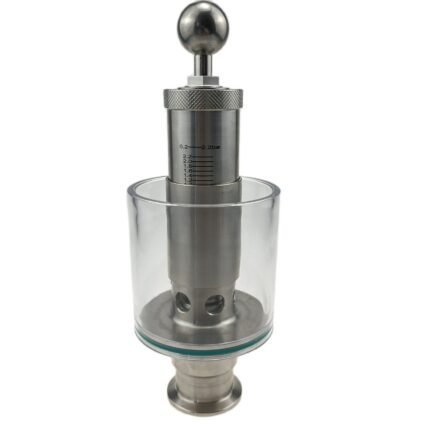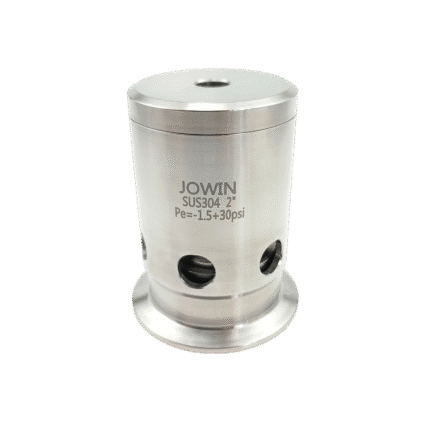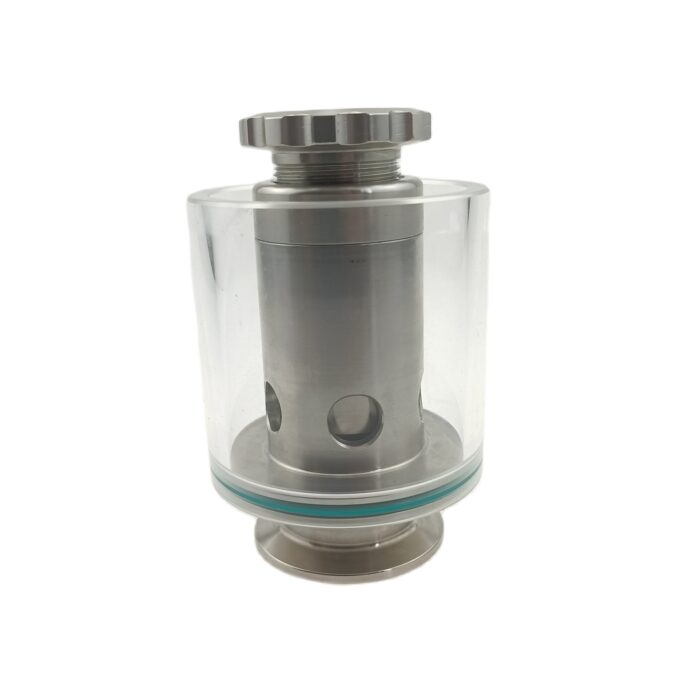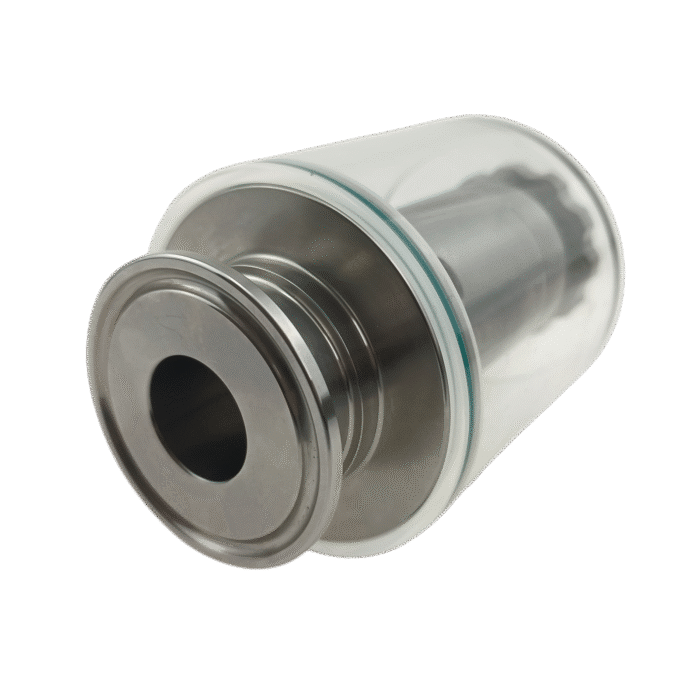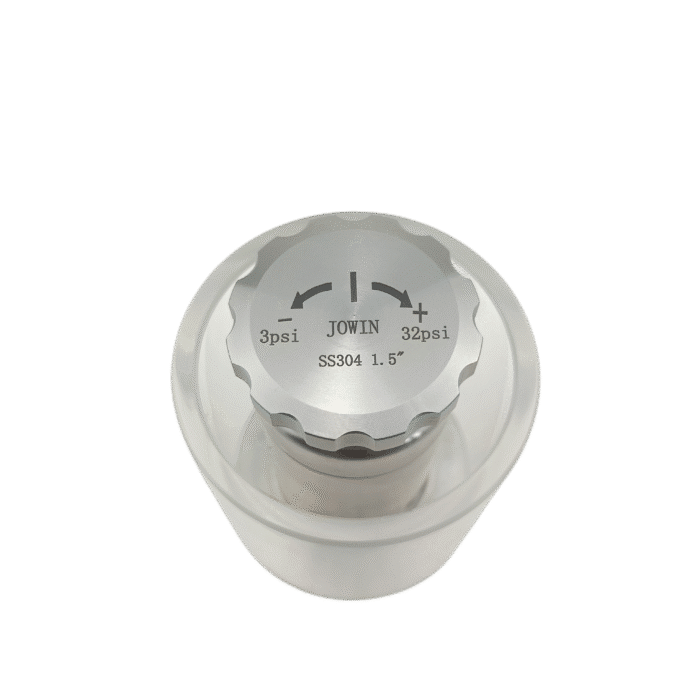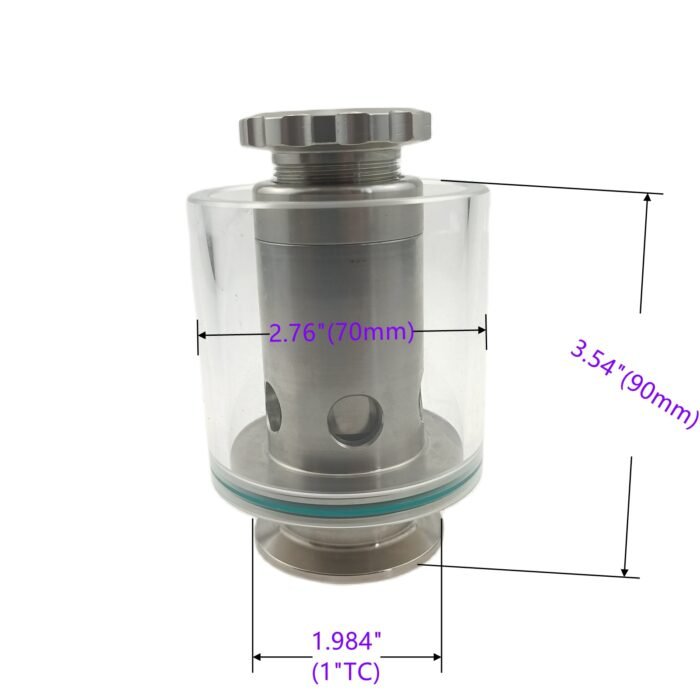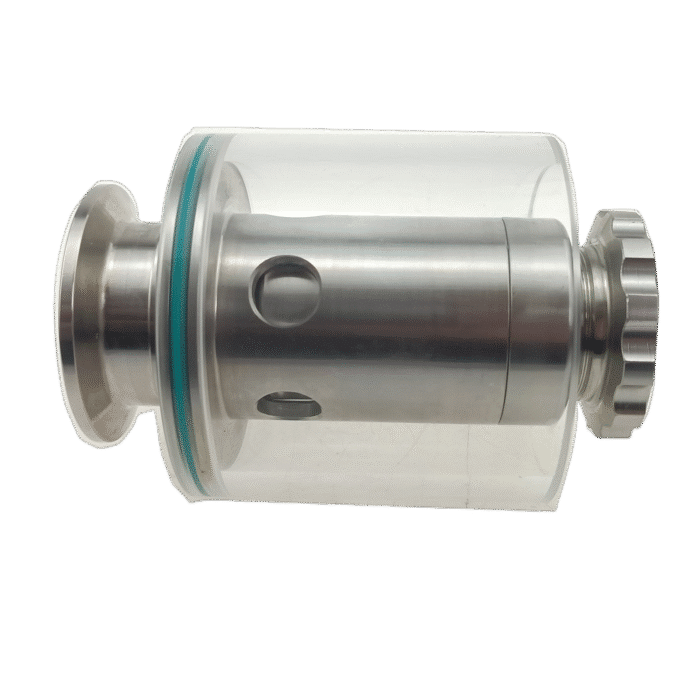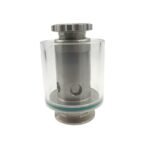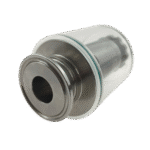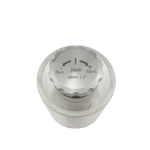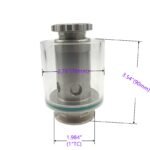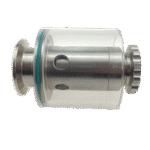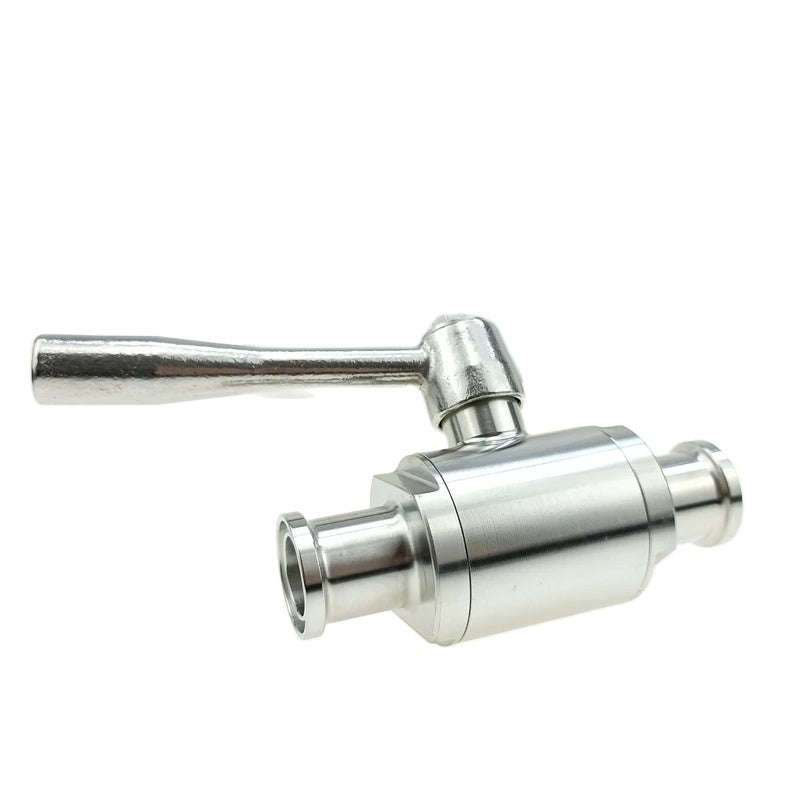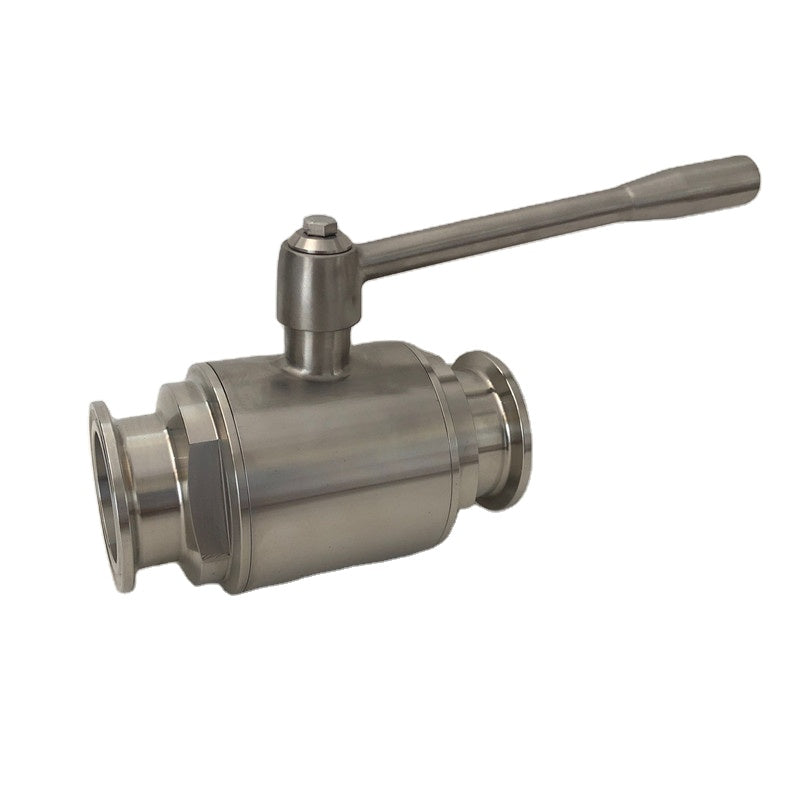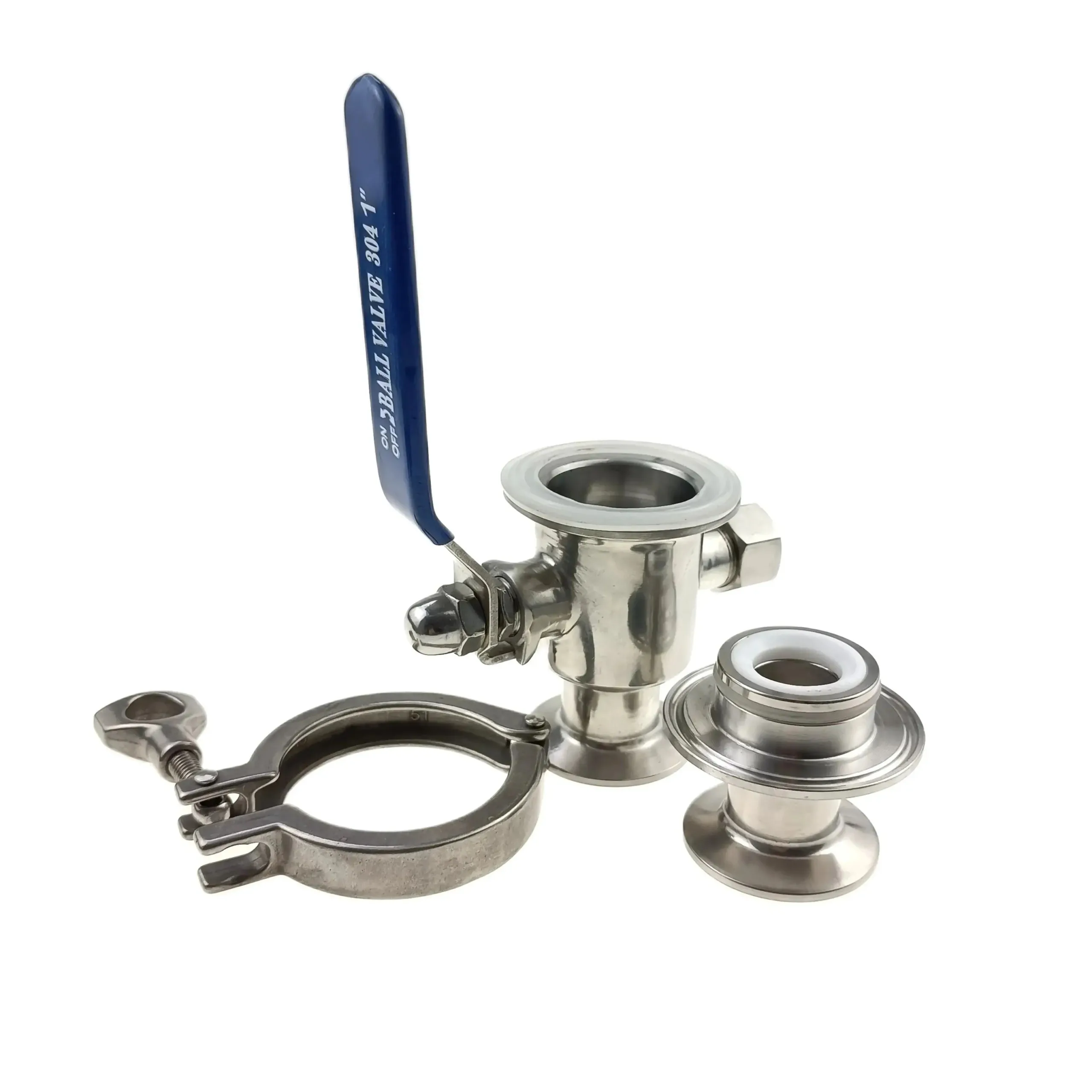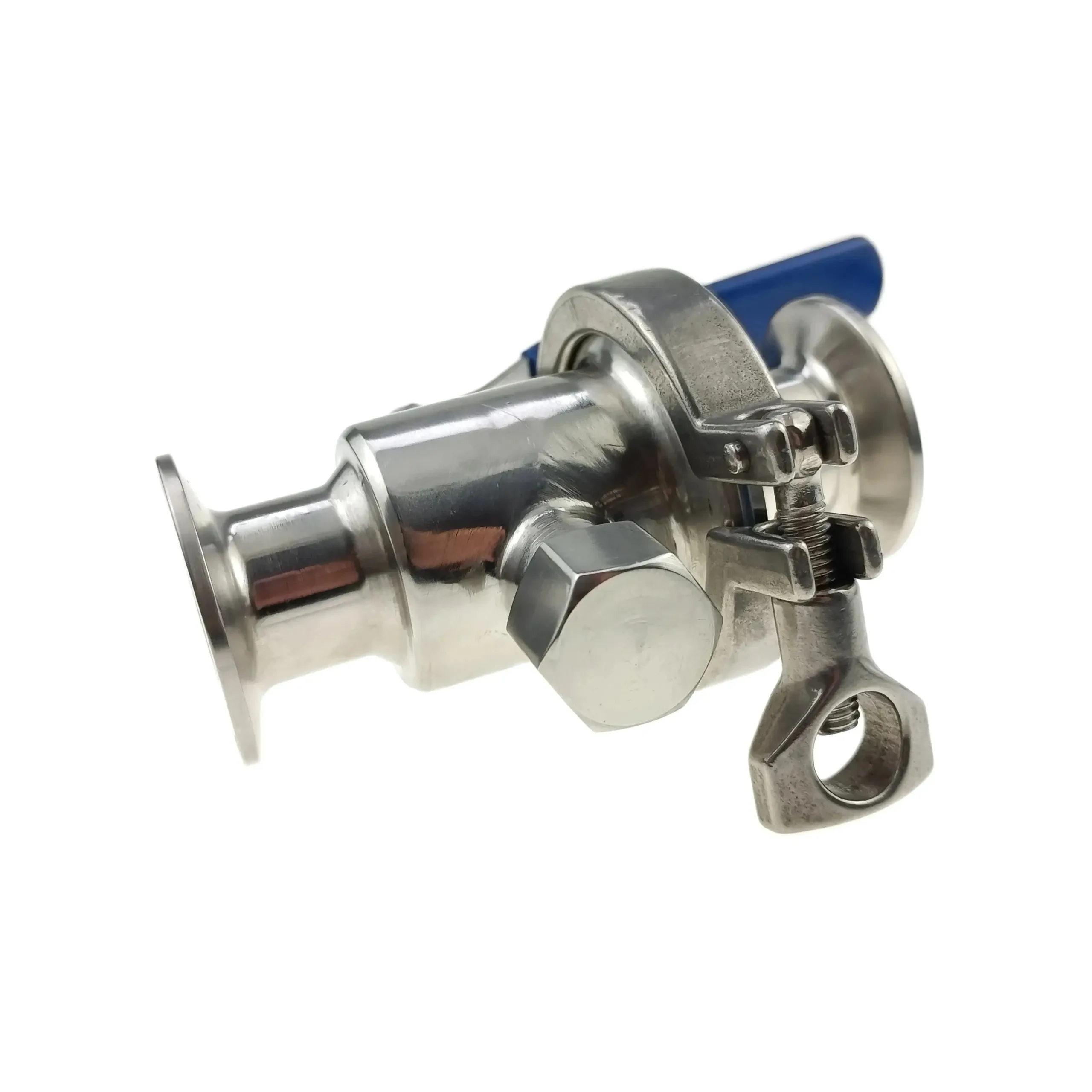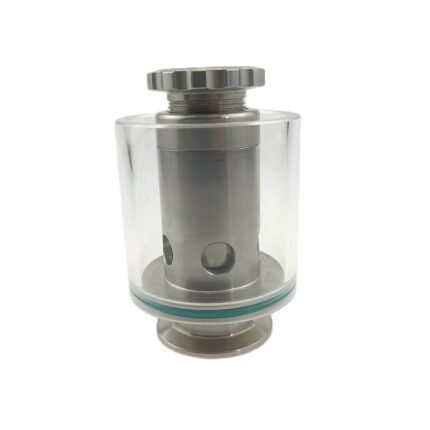Product Description
About this item
- SS304 Stainless Steel .
- Compact type, up to 2bbl, non-scaled, adjustable.
- 70mm diameter cup, tri clamp end fits 1″ and 1.5″ sanitary TC fitting, ferrule OD is 1.984″.
Frequently asked questions
Frequently Asked Questions (FAQ)
What is a Tri Clamp Compact Non-scaled Sspunding Adjustable PRV?
The Tri Clamp Compact Non-scaled Sspunding Adjustable Pressure Relief Valve (PRV) is a device used to control pressure in various systems. It is designed to be connected to 1″ or 1.5″ tri clamp fittings and allows for adjustable pressure relief within a range of 0.2 to 2.2 bar (approximately 3 to 32 psi). This type of valve is commonly used in industries such as food and beverage, pharmaceuticals, and water treatment.
What are the applications of this PRV?
This adjustable PRV is suitable for various applications, including:
– Controlling pressure in brewing systems
– Managing pressure in distillation equipment
– Protecting pumps and piping systems from overpressure
– Ensuring optimal pressure levels in hygienic processes in the pharmaceutical and food industries
How do I adjust the pressure on the PRV?
To adjust the pressure on the Tri Clamp Compact Non-scaled Sspunding PRV, you need to locate the adjustment screw on the top of the valve. Turning the screw clockwise will increase the set pressure, while turning it counterclockwise will decrease it. Always ensure that the system is depressurized before making adjustments to avoid any accidents.
What materials is the PRV made from?
The PRV is typically constructed from high-quality stainless steel, which is ideal for sanitary applications. Stainless steel is resistant to corrosion and ensures that the valve maintains its integrity in high-pressure and varying temperature environments.
Can this PRV be used in sanitary applications?
Yes, the Tri Clamp Compact Non-scaled Sspunding Adjustable PRV is specifically designed for sanitary applications, making it suitable for the food, beverage, and pharmaceutical industries. Its tri clamp connection allows for easy installation and removal, promoting safe and hygienic processes.
What pressure range can the PRV handle?
This PRV is adjustable within a range of 0.2 to 2.2 bar (approximately 3 to 32 psi). It is important to select the appropriate pressure setting based on your specific application requirements to ensure optimal performance.
Is maintenance required for the PRV?
Regular maintenance is recommended to ensure the PRV functions properly. This may include periodic inspection for leaks, ensuring that the adjustment mechanism is functioning smoothly, and checking for any corrosion or wear. Following the manufacturer’s guidelines for maintenance will help extend the valve’s lifespan.
Can this PRV be used in high-temperature applications?
The Tri Clamp Compact Non-scaled Sspunding Adjustable PRV is designed to withstand various temperatures, but you should check the manufacturer’s specifications for maximum temperature limits to ensure suitability for high-temperature applications. Adequate thermal protection or insulation may be required in some cases.




